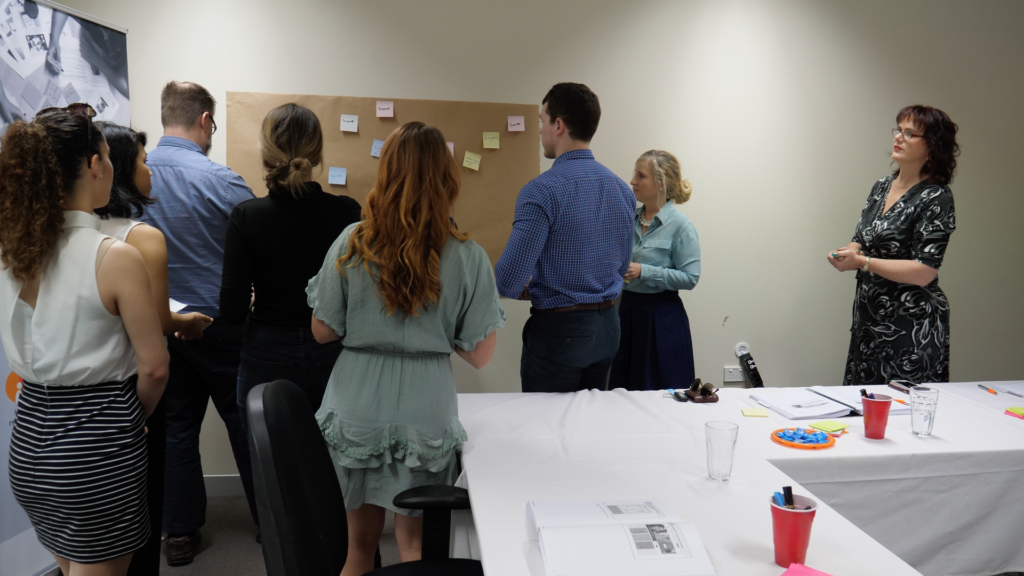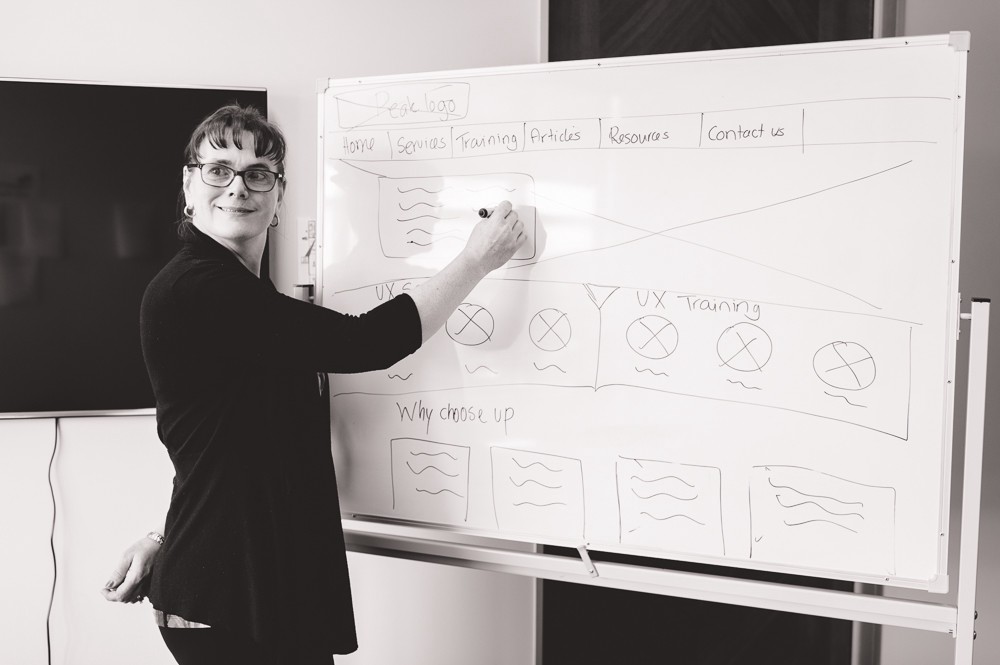
By Miranda Wee. An interview with Tania Lang, Principal, Trainer and Coach at PeakXD, a UX consultancy and training company based in Australia.
Tania has been a UX designer for 20 years and still loves her job
I count myself lucky, having worked in UX for 20 years, I still love what I do. How many people can say that about their job?
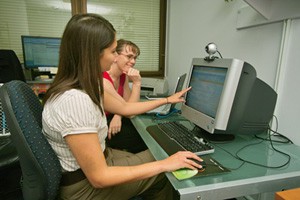
I love that I am empowering others to make the world a better place through human centred design and I feel like I am making a difference in the world.
I love that I get to utilise both my creative side as well as my analytical, problem solving side.
I get to meet lots of interesting people in society from all walks of life from the past premier of our state regarding her website to homeless people looking for legal aid assistance.
I really enjoy hearing people’s stories and understanding what makes people tick.
It is also nice to be paid well for what I do. In my previous marketing roles in the tourism industry the perks were awesome, but the pay was terrible. It is good to work in an industry where UX people are highly sought after and valued and we are remunerated accordingly.
Can you be a UX designer without a degree? How did you get into UX?
I have a diverse background and worked in sales and marketing before entering this industry. I actually did a Masters by Research into online travel consumer behaviour in the US.
When I returned to Australia, I landed a role at a Ernst & Young conducting user research for a tourism portal. My degree helped me get my first role, but they weren’t really interested in the degree itself but rather than I had some knowledge of the tourism industry and could demonstrate I could apply myself.
I was actually doing UX before I even discovered it was a career. While I was at Ernst & Young, I joined their User Experience team in 2000 and did another university degree in Human Factors.
But to be honest, most of what I learnt over the last 20 years was from reading and trial and error.
My advice to others is that a university degree helps but it is not essential. Most UX employers understand that a university degree demonstrates that you can apply yourself and have the ability to learn.
As an employer I find that most of the university graduates we recruit have a good base knowledge, but they learn most of their UX skills and experience on the job as they get more projects under their belt.
Is UX design stressful?
Tania: Every job has challenges and elements of stress and if it didn’t, I would argue that the job would be boring. The three biggest challenges I see UX designers have are:
1) Confidence and belief in themselves and their work (imposter syndrome is very common).
2) The ability to engage and convince stakeholders and developers to take a customer centric view.
3) Convincing others that UX design is more than just UI/Visual design.
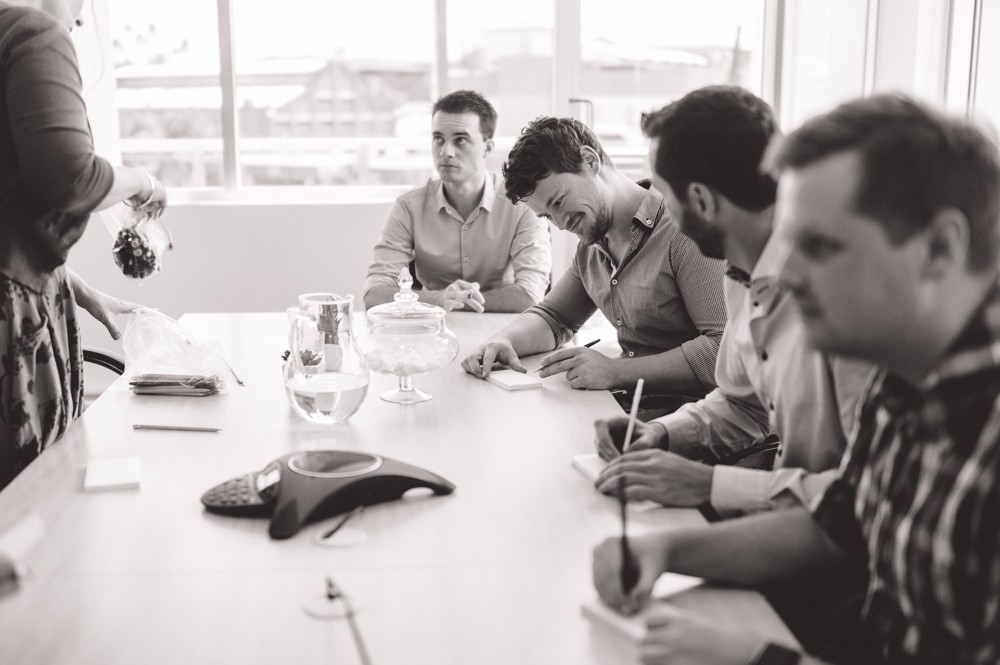
What is the difference between UX design and UI design?
Tania: I have created a formula to explain the difference: UX — U = UI.
What I mean by this is that if you are not involving users in your project, if you are not researching user needs, engaging them somewhere in the design process and/or testing concepts and designs with users then it is not UX design.
So, if you remove users from the equation (i.e. the ‘U’) then it is not UX design, it is more UI design.
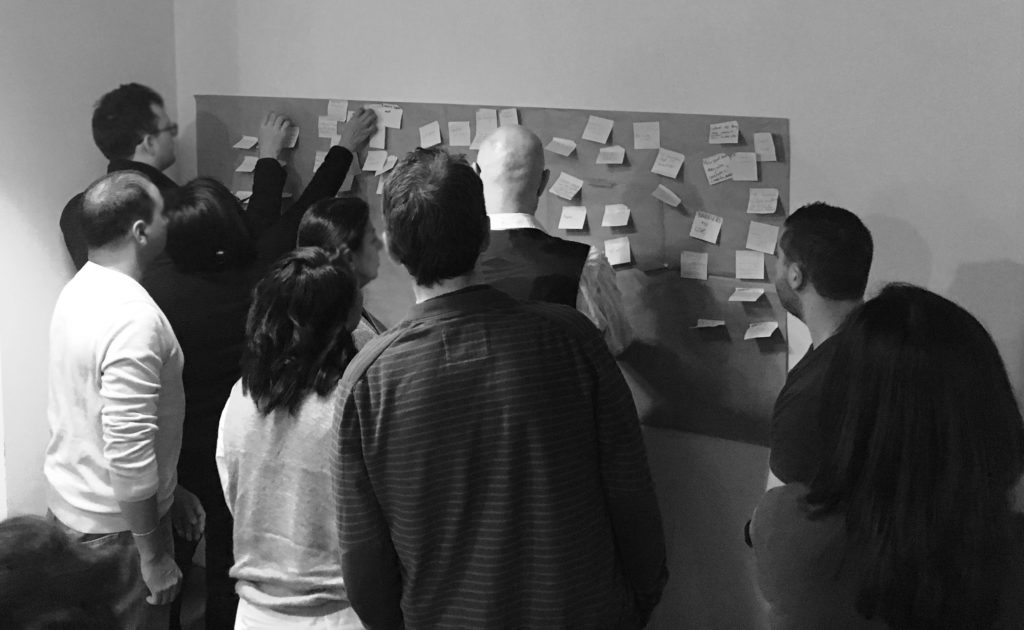
You can be a really good UI designer and design beautiful visual interfaces but if you are not engaging users in the process it is not UX design in my view.
Can you learn UX design on your own?
Tania: Like most things you can teach yourself a lot and I certainly have taught myself a lot over the years. I have also learnt a lot through trial and error.
However, it has also taken me 20 years to teach myself everything I know now. So yes, you can teach yourself if you have lots of time and a supportive work environment that lets you try and fail.
However, there are many UX courses out there now like our 13 week UX Accelerator program that my team and I have developed that will fast track your learning.
If you can learn from short intensive programs such as ours with a team of experienced coaches, you are going to learn a lot faster and avoid the mistakes that people such as I have made.
Does UX design require coding? Does UX design require design skills?
Tania: I interviewed a UX Manager last month who commented that even though she has been a ‘UX Designer’ for 20 years, she has only designed a few wireframes in her 20 years. That is certainly true for me and many other UX designers I know.
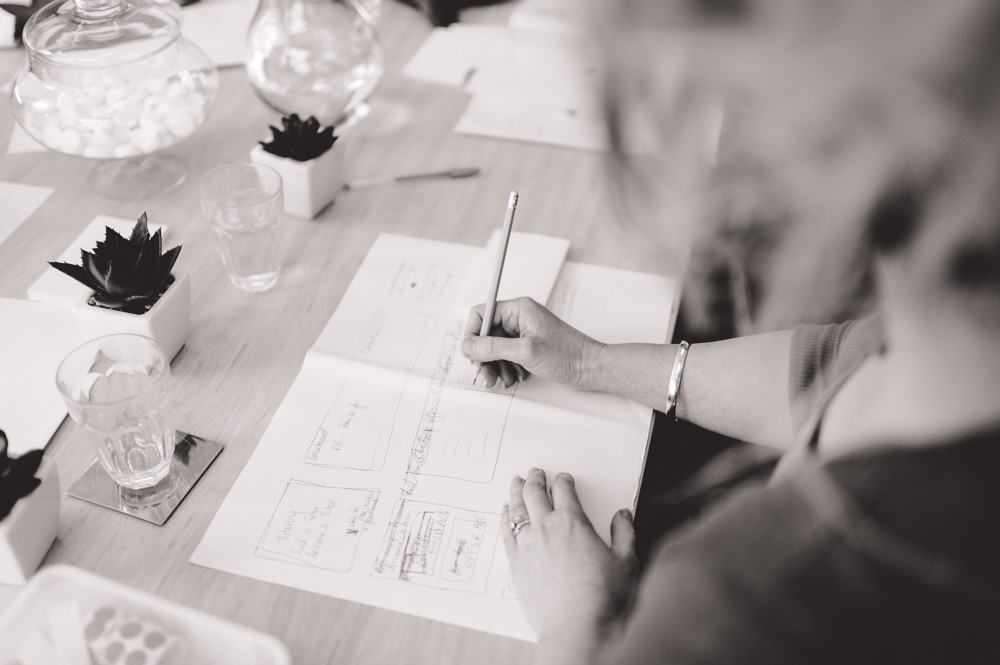
Yes, I know some UX designers who can code and have strong visual design and UI skills but I also know many who don’t.
I personally have strong user research and usability testing skills and am also pretty good at interaction design, but I don’t have visual design skills and I can’t code.
UX design to me is a generalist term and within this there are many areas of speciality including user researcher, usability tester, UX/UI designer, interaction designer, information architect, information designers, customer experience officer, service designer, product manager etc.
All these UX roles involve some element of the user experience but the term ‘design’ in UX designer is more about the design of customer experiences rather than the design of screens or interfaces.
If I visit a beautifully designed eCommerce website but have trouble checking out or don’t receive my ordered goods due to poor back end systems and inventory control, I still have a bad user experience and the beautiful UI is inconsequential to me as a customer.
So, what does a UX designer actually do?
Tania: It really depends on your specific role. As mentioned, there are many different UX areas of speciality. For instance:
You might be out in the field conducting research and talking to users and observing their behaviour interacting with a system or service.
You might be working collaboratively in a workshop with a team of stakeholders or users to come up with a design concept or solution.
You might be sitting at a desk by yourself using tools to design a wireframe or interactive prototype.
You might be working with developers in daily stand ups or helping them interpret requirements.
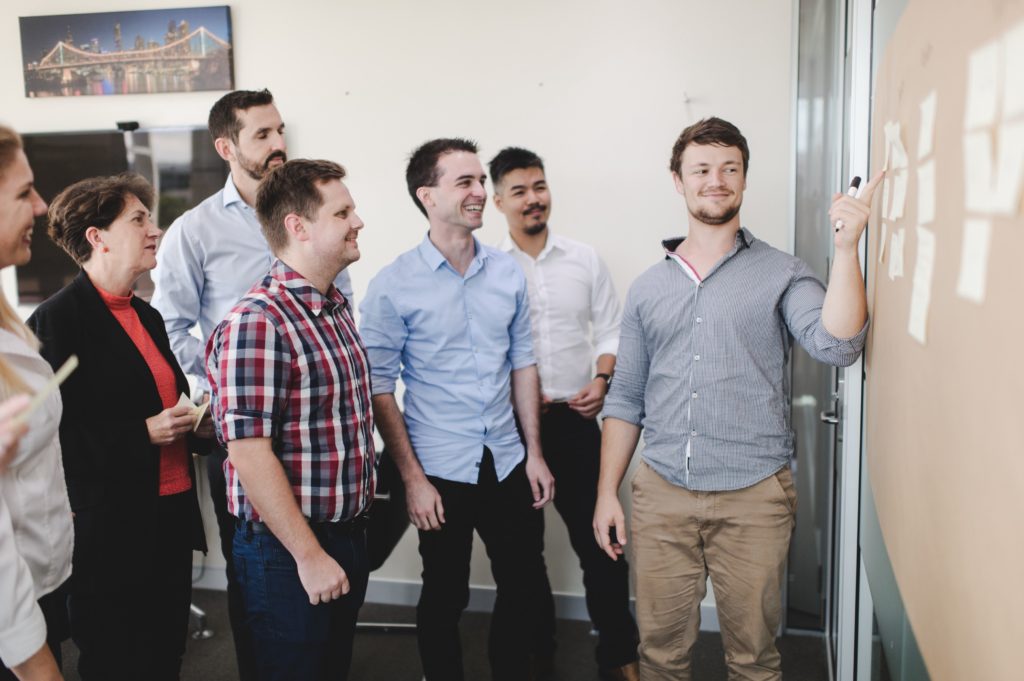
You might be moderating a usability test session with end users out in the field or your office.
What I love is that we never do the same thing every day and we have a lot of variety which keeps things interesting.
Do you have any advice for others on how do you become UX designer?
Tania: First of all, I would suggest you look at not only your past work experience and what might be relevant or transferable. You would probably be surprised at what skills employers are interested in.
I would also look within to your core personal attributes and values. We have developed an online quiz to see if people have what it takes to become a UX designer which we based on several interviews with UX recruiters and employers.
It is difficult to give broad advice that is relevant to everyone as it really depends on their personal situation.
What I prefer to do is to talk to people one-on-one to understand what relevant experience they have that might allow them to sidestep into UX and what their interest and motivations are. I often do this through our Career Discovery Calls.
What does a UX Career Discovery Call involve? Is this just a sales call to sell your courses?
Tania: No not at all. I personally cringe to think of high pressure sales calls.
Our mission at PeakXD is to empower others to improve the world through human centred design. As I have been doing this for many years, I am now at a point in my life I want to help and guide others to enter our industry.
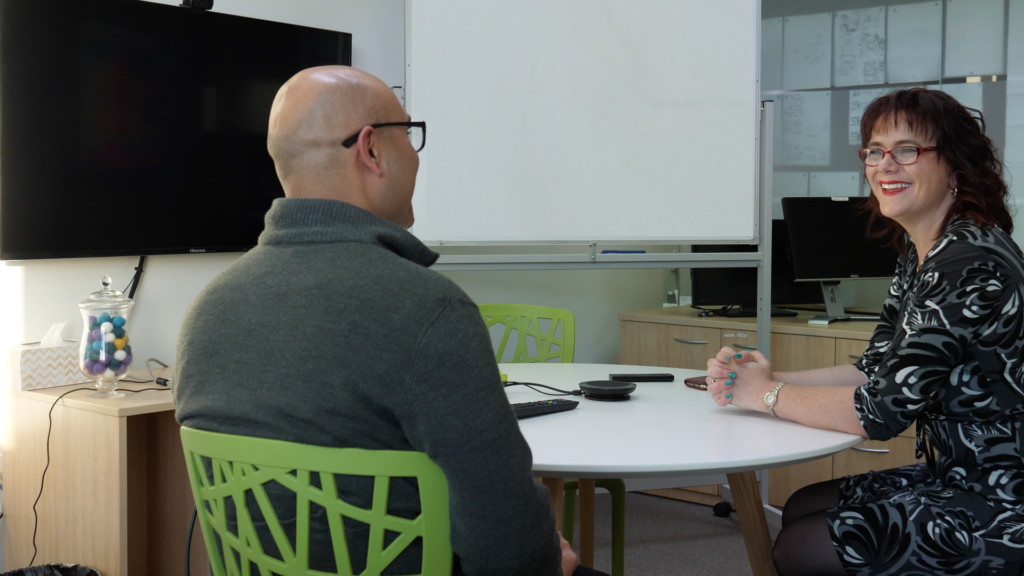
Our Career Discovery Calls involve no pressure or hard selling. We don’t have a team of professionally trained sales people like some firms. Only myself and our experienced UX consultants conduct these calls and we genuinely want to help people get into UX.
Our goal in these Career Discovery Calls is to get to know a bit about the person, their career goals and to give them some constructive advice regarding their career. They are quite involved and typically take nearly 1 hour.
Our other goal is to determine what training they might need to help get them where they want to be and if our training course is right for them.
Sometimes our course is not right for people and I have recommended to individuals to do another course. If I don’t think our course is a good fit, I guide people in the right direction as I only want people doing our course if they are a good fit and have what it takes to be successful.
One of the calls I did last week even emailed me afterwards to say “I found our call really useful and has given me plenty to think about. I do think that UX is an area that I could do well in.” Personally, I find this very satisfying and rewarding that I am helping others.
How do people book in for a Career Discovery Call?
Tania: Unfortunately, we can’t talk to everyone on the planet who wants to get into UX. We only offer a small number of Career Discovery Calls every month which are available to anyone around the globe. People can book into these timeslots via our Career Discovery Call booking page.
